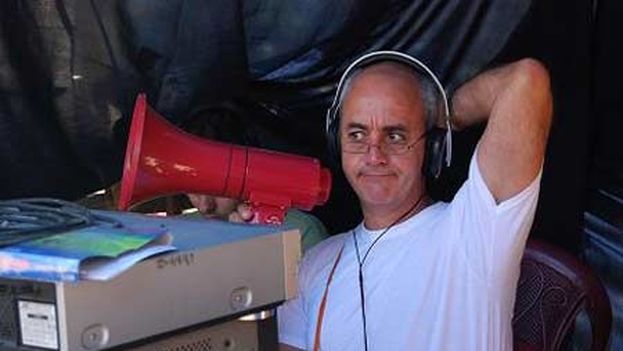
Reinaldo Escobar, Havana, 11 July 2015 — It is very likely that the youngest among us don’t know the reference to the 1951 novel “The Story of a Real Man” by the Soviet writer Boris Polevoy, which tells the story of Alexey Petrovich Maresyev, a fighter pilot who lost both his legs and through a heroic effort continued to pilot a plane and engage in new battles.
Juan Carlos Cremata (born 1961) is the least likely hero of Real Socialism. He is an artist from head to foot, irreverent and lucid, who has left his mark both in the theater and the cinema. He has received numerous national and foreign prizes and a great part of his oeuvre has been dedicated to works for children and teens. Among his most well-known films are Nada (Nothing) and Chamaco (The Kid: Chamaco) as well as works that have circulated via alternative means, as is the case with Crematorio (Crematorium).
However, now Juan Carlos has gotten into serious trouble. Saturday the 3rd and Sunday the 4th of July a work directed by him was staged by the group El Ingenio in the Tito Junco hall of the Bertolt Brecht Theater in Havana. The play was The King is Dying*, by the French-Romanian playwright Eugene Ionesco, the story of a king who resists the idea that death can touch him any day.
The leadership of National Performing Arts decided to suspend the play and accused the prize-winning artist of the worst insults. But, unlike others, Cremata did not choose to remain silent and responded, leaving nothing out.
Defending the censored artist could be dangerous in the short term, but silence, or even worse, complicit approval, would be disastrous.
Now it only remains to see the reaction of the Cuban intellectuals in the face of this despotic display of censorship. Defending the censored artist could be dangerous in the short term, but silence, or even worse, complicit approval, would be disastrous.
The youngest among us, those who do not know the work of the Soviet journalist and narrator Boris Polevoy, will be tempted to search for “A Real Man” in the digital dictionary Wikipedia, but will be surprised to find there that is a CD by the group Alaska y Dinarama. Some relationship will be found with the polysemic playwright, but those who read the odyssey of the mistreated pilot and who read the arguments of this courageous artist might conclude that, like Alexey Petrovich Maresyev, Cremato will once again fly and fight.
Translator’s note: The play has been staged in the United States under the name “Exit the King”
